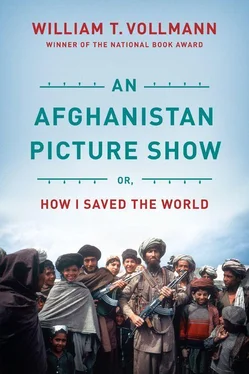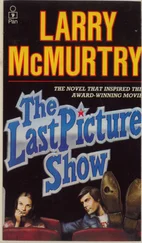Too many puppets, too many strings
Since the man whom I call the Reliable Source was promised that he would not be identified in any way, I will abstain from any description of him or his surroundings. He was hospitable, as everyone was, and gave the Young Man a Sprite. — The difficulties across the border had begun, he said, in 1973. —Yes, it would have been in 1973 that the Soviet Union became especially interested; so the Young Man supposed. That was when Daoud overthrew the monarchy in Afghanistan. †And when the Soviet Union got interested, then Pakistan had better get interested, too. — The Young Man switched on the recorder. “So you started studying the problem in 1973?” he asked.
“Yes,” said the Reliable Source, “in ’73 our government began to see changes on the horizon — not only in Afghanistan itself but in the entire region. You know, the Chinese leadership was aging, and so they would be going out inside some period of time. One had to allow for that.” —He was ticking off the falling colossi on his fingers. — “Then the Russian leadership was aging. No one could figure out with certainty who would follow in their shoes.” —Another finger fell. — “Much closer at home, we saw the Shah of Iran. Now, we knew that he would possibly have to go under to a popular movement at some point in time. There was no organized and organic system which could take over and run the government after him, because there were only court ministers and such.” —Another finger. — “Then, closer at home, we saw Afghanistan. With Zaher Shah ousted, we began to have real nightmares — in this sense: that as long as Daoud remained, there was some stability in the country, but once Daoud went out, then unknown people would start emerging. And that is what set us upon a certain plan of action — because we had our own national compulsions, Young Man! — In addition to that, Afghan people had never been friendly to us since ’47. ‡They had also conducted certain activity in this province, and in Punjab, and these areas.”
“That was because of Pushtunistan?” §the Young Man said.
“Well, that was the racket,” laughed the Reliable Source, “but I mean it must have been the other superpower interests who brought it about. Naturally there were proxies who were playing that game, but whether it was at the behest of the Indians, or the Russians, or their own …” —He shrugged. To the Young Man he seemed rather lonely. — “But right from the time we joined the United Nations they had opposed our entry, the Afghans. That was the only country that opposed our entrance. — But then we developed a relationship . The government of Afghanistan and of Pakistan both knew that if tomorrow, in case one of us or the other of us went out …” —The Reliable Source had a trick of not finishing his sentences. Partly, no doubt, that was because English was not his main language, although he spoke it almost fluently; partly it must have been because now everything about the Afghanistan situation seemed so conditional, vanished, wistful. In case one of us or the other of us went out … — And now, of course, they had both gone out. — “Daoud in 1976 when he came here,” said the Reliable Source, “he told Mr. Bhutto, he said, ‘If from the north, it is us today; tomorrow it is you. If from the south’ (that is, India), ‘today it is you; it is us tomorrow.’ So they could see the realities. But they had to play a certain chess game that was going on” (and in his mind’s ear the Young Man could hear Daoud calling yet again for a plebiscite in the
North-West Frontier Province; he could hear the yells and rifle shots of Afridi tribesmen on horseback, come across the border to found the sovereign state of Pushtunistan no matter what the Pakistanis might say; he could hear the border closing, slamming like a door so that the nomads could no longer cross the Durand Line ‖for their summer grazing in the snowy grassy mountains as they had done for hundreds or thousands of years) —“but the Afghans never were against our genuine interest,” said the Reliable Source, “in the sense that they never interfered in our communication or our …” —Again his voice trailed off. — “In the ’65 war band in the ’71 war, aif they did not lend us support, at least they did not add to our strains. But then when Zaher Shah went out, we thought that henceforth that would be lacking! The royalty gave a continued stability to the system in Afghanistan: today Zaher Shah, tomorrow it will be his son or someone else; and there was continuity of government in Afghanistan; it remained a stable area. Now, with Daoud’s ouster of Zaher Shah, we knew that an element of uncertainty had come into being. And it had to be looked after.
“In addition, as I have said, there were the little bomb blasts and pinpricks in this area. Now, at the same point in time these groups — and they remained as such, as one group, until the fifth of July 1977 …” —The Reliable Source was getting something just right in his head. — “Well, first of all came a gentleman by the name of Habib Raman. He was then later captured by the Afghans in ’75; he was”—the Reliable Source drummed his fingers—“brutally tortured and finally killed in Kabul Jail. Then, of course, Gulbuddin and those people. Rabbani was brought in later, as he was actually kept in the background because he would not disclose his identity. We kept asking them for some time whether they had a leadership which would meet the situation in Afghanistan, and they kept insisting that they had a man but they would not disclose him. But later on in ’74 they brought him, and they said, ‘This is Rabbani, and he is our genuine leader.’
“Now, these people had come away — one, against the oppression of Daoud; the other factor was that we wanted to bring home to Daoud’s government that two can play that same game with bomb blasts here and things, playing this game across the border. You see, that is what we did in 1975 in Panjsher, cand we brought home one lesson to Daoud with regard to ending the Pushtunistan problem and getting recognition of the Durand Line and so forth. So that was one of the objectives.”
“So Gulbuddin and Rabbani and so forth helped with these bomb blasts?” said the Young Man, trying to conceal his dismay. Somehow he had thought that they were freedom fighters.
“No, they organized, let us say, an uprising; it was not just bomb blasts; it was a national uprising against the Daoud regime in the Panjsher Valley.”
“Now, what did they want? Did they want Zaher Shah back?”
“They did, yes, because at that time they were all agreed on that, and so was our government — because we thought, you see, that any revolution which came about in Afghanistan at this point in time would not be in the people’s interest, in the sense that politically and socially they were not mature enough to take on the responsibilities of a revolution, be it leftist or rightist. So we thought,” said the Reliable Source, “that they required more time. And that time could only be forthcoming if Zaher Shah was brought back, and he had given them a few more years for education to start coming up. Now, these groups had also come up, because of the social awakening, like the Parcham and Khalq, dand these elements like the Mujahideen were already here, too. But they needed time.”
Clearly the Reliable Source enjoyed the role of mentor. The Young Man felt like a little boy who should have been in bed, being allowed just this once to stay up, raising himself on tiptoe so that he could see where the balls went on the international pool table — and when the Reliable Source had been a man of consequence, in the days before Bhutto’s fall, he had let the Afghans stay up late, too, and taught them tricks. He told the Young Man how it had been decided, for instance, to extend the franchise in the tribal areas to include all adult males; formerly only the tribal elders had had it. — “So if you make things better for people this side of the Durand Line,” he said, “then the Afghans start looking toward Pakistan. So we wanted the elements which were lying on our borders to be looking toward us , to look up to us for change. Most of the tribes are so divided that half the elements are on the other side of the Durand Line, cis- and trans -Durand Line; they have ethnic commonality …”
Читать дальше












